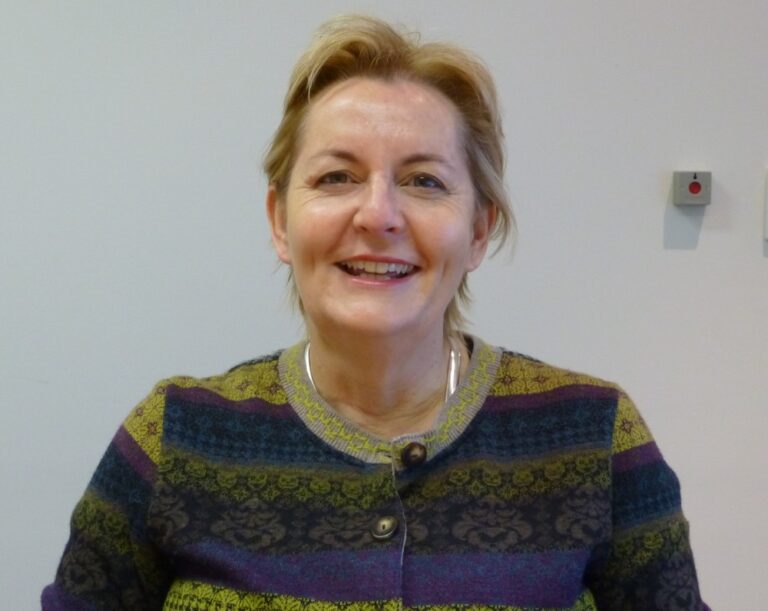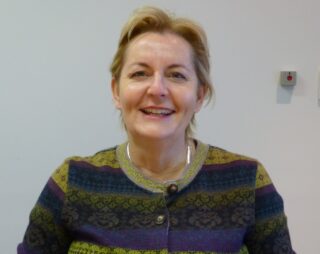- Entry type: Person
- Entry ID: AWE5730
Walker, Sally
- Emeritus Professor, AM

- Occupation Academic, Consultant, Lawyer, Solicitor, Vice-Chancellor
Summary
Emeritus Professor Sally Walker AM was the first female vice-chancellor and president of Australia’s Deakin University. Prior to holding these appointments, she was senior deputy vice-chancellor at the University of Melbourne, where she was also president of the University’s Academic Board, member of the senior executive, and pro vice-chancellor. Walker established the pioneering Centre for Media, Communications and Information Technology Law (now Centre for Media & Communications Law) at the Melbourne Law School and was its inaugural director. While at the Law School, she was Hearn Professor of Law. Walker was also secretary-general of the Law Council of Australia for a time.
Appointed as a Member of the Order of Australia in 2011, in recognition of her contribution to education, to the law as an academic and to the advancement of women. In 2014 she was inducted onto the Victorian Honour Roll of Women. As a Principal at Deloitte, Walker continues to consult widely on strategic and leadership matters in the higher education sector.
Sally Walker was interviewed by Kim Rubenstein for the Trailblazing Women and the Law Oral History Project. For details of the interview see the National Library of Australia CATALOGUE RECORD.
Details
Emeritus Professor Sally Walker’s early life was spent on farming properties managed by her father in various parts of Victoria. Winning a scholarship to be a boarder at Melbourne Church of England Girls’ Grammar School (now Melbourne Girls Grammar), she was inspired to study law after the school enabled her to meet a number of successful women lawyers [Patterson]. In 1976 Walker graduated from the University of Melbourne with a Bachelor of Laws (Honours), winning the Supreme Court Prize for the highest-placed student in the final honours list, the Anna Brennan Prize and the Joan Rosanove Prize.
While undertaking articles of clerkship at the Melbourne firm Gillotts Solicitors (later part of Minter Ellison), Walker completed a Master of Laws at the University of Melbourne. She left the firm soon afterwards to take up a position as an associate to the then Justice Aickin of the High Court of Australia. Following her associateship, she returned to Gillotts Solicitors and was later made an associate partner [Aiton].
The increasing importance of media and communication law had now captured Walker’s interest. She returned to the University of Melbourne, taking up a position as a lecturer in the Faculty of Law. After being promoted to senior lecturer and then reader in the Faculty, Walker was responsible for developing a new undergraduate subject – Media Law. In the Master of Laws program she also established the Graduate Diploma of Media, Communications and Information Technology Law. She also taught Trade Practices law, Intellectual Property Law, Constitutional and Administrative Law, Security Law and, in the Master of Laws program, Advanced Trade Practices Law, Defamation Law and the Law of Contempt of Court.
In 1992 Walker was Visiting Fellow at Wolfson College, University of Cambridge. She returned to the University of Melbourne the following year, and took up an appointment as the Hearn Professor of Law. Around this time Walker also became the first academic secretary to be appointed to the Victorian Attorney-General’s Law Reform Advisory Council. [Patterson].
Between 1995 and 2000, Walker was deputy vice-president, vice-president and president of the University of Melbourne’s Academic Board; she was a member of the University’s senior executive and a pro vice-chancellor. Walker also established the Centre for Media, Communications and Information Technology Law (now the Centre for Media & Communications Law).
Walker became the second most senior executive at the University of Melbourne when she was appointed to the position of Senior Deputy Vice-Chancellor in July 2000. Soon she was being called upon to be acting vice-chancellor in the absence of the then vice-chancellor, the late Professor Alan Gilbert [Patterson].
Among her achievements as senior deputy vice-chancellor, Walker reserves her greatest pride for the role she played in the ‘Academic Women in Leadership Program’, which aimed to encourage women to take up leadership roles in the university [Ketchell; Royall; Cook]. On the success of this program, Walker observed that “the more women there are in senior positions, the more other women, during the early stages of their career, will think it is possible and feasible for them, too” [Cook].
In 2003, Walker became the first female vice-chancellor and president of Deakin University. In the ensuing seven years, she oversaw research endeavours with India, augmenting student enrolments, increased the University’s financial reserves, and set up a new medical school. She also did much to attract and retain female staff, so successfully that she won an Equal Opportunity for Women in the Workplace Agency award [Ketchell].
Fervent about higher education, Walker said of her time at Deakin that she was: “absolutely passionate about Deakin University. Passionate about rural and regional engagement. Passionate about access and equity to higher education. Deakin is my life. I really care about the future of regional Australia” [Aiton].
At the conclusion of her appointment as vice-chancellor in 2010, a scholarship was created in Walker’s honour to support students from low-income backgrounds to attend Deakin University [Scholarship]. Walker was also conferred with the honorary degree of Doctor of Laws for her contribution to Deakin University, to legal education and scholarship and to higher education in general [Oates] and a building was named after her on the Geelong Waterfront.
Walker has undertaken various consultancies for federal and Victorian government departments. She was a member of the National Selection Panel for the General Sir John Monash Foundation Scholarships and she remains a member of the Felton Bequests Committee.
She was appointed as a Member of the Order of Australia in 2011 in recognition of her contribution to education, to the law as an academic and to the advancement of women. In 2014 Walker was inducted onto the Victorian Honour Roll of Women.
Now a Principal at the international professional services firm Deloitte, she continues to provide consultancy services across the higher education sector on strategic and leadership issues. This work often draws on her legal background.
Walker has shown leadership by driving innovation in higher education institutions and by empowering women with flexible work practices. She has also done a great deal to encourage the promotion of women into senior academic and administrative roles. Walker’s contribution to law and society has been to demonstrate that education can transform lives and enrich rural and regional communities.
Events
-
2014
Inducted into the Victorian Honour Roll of Women
Archival resources
Digital resources
Published resources
-
Site Exhibition
- Australian Women Lawyers as Active Citizens, http://www.womenaustralia.info/lawyers/biogs/AWE5730b.htm
-
Resource Section
- From scholar to secretary-general, Patterson, Alicia, http://law.unimelb.edu.au/alumni/mls-news/issue-8-october-2012/from-scholar-to-secretary-general
